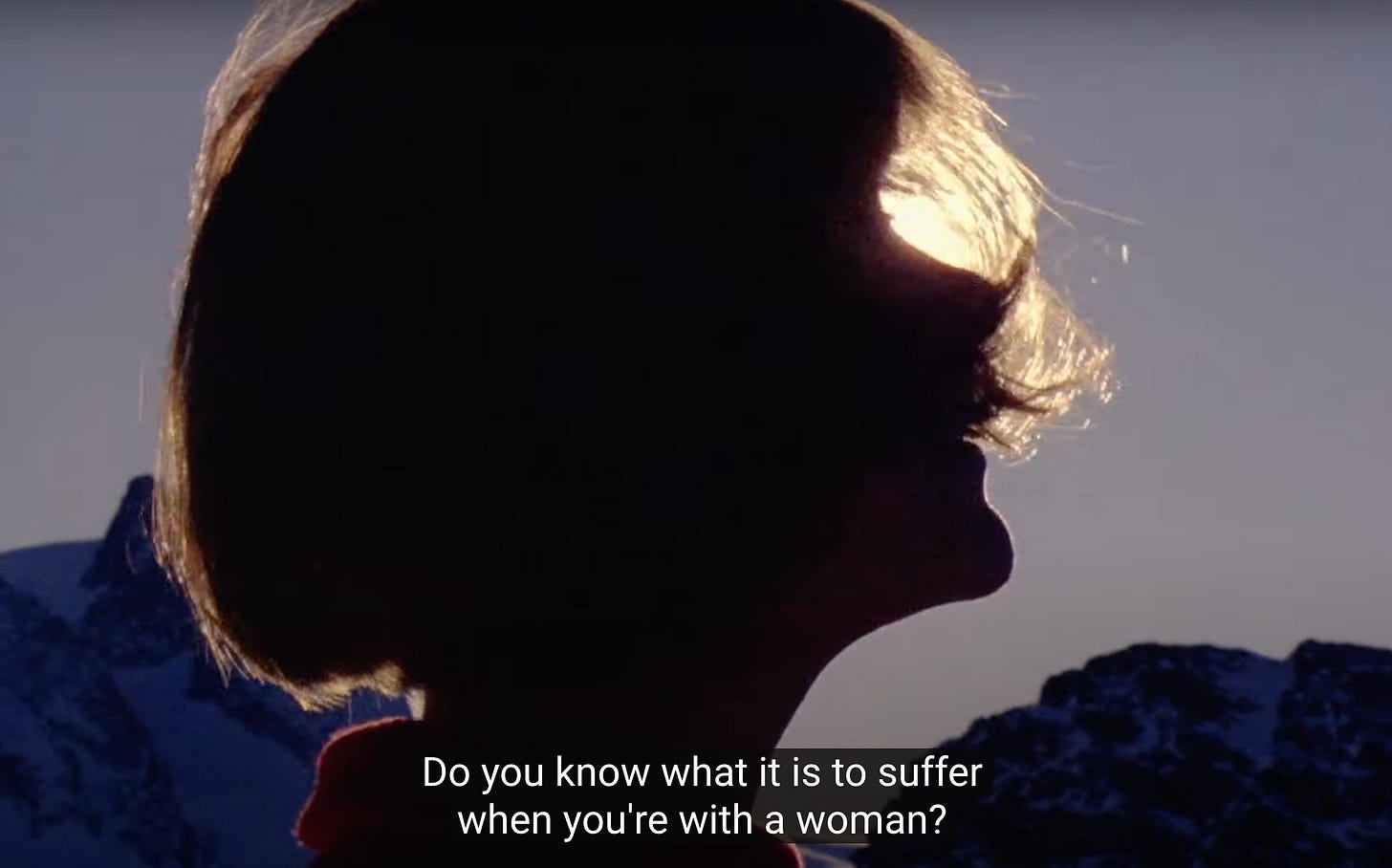On catcalling
an interlude
The first time I was catcalled, as people like to put it, I was about 13. It was the middle of the afternoon on a fiery summer day in the bone-dry Northern California town where I grew up. My dad’s apartment wasn’t in a nice neighborhood, but nor was it anywhere that was thought to be unsafe; unless I could catch a ride with my parents, I walked, biked, and ran everywhere I wanted to go.
Despite the heat, I was running. A few blocks from home, a group of men began to tail me in their car. One of them was recording me with something1. Because I was ugly, I believed, not yet aware that what I looked like didn’t matter, beyond my gender and age. I was afraid, which was the point. The men laughed at me together.
We all have our little stories. Most men harass us in public with the modest goal of frightening or angering us, though many of course are more ambitious2. Our fear and fury derive from the humiliation of being so exposed, and so meaninglessly so.
As I got older and uglier, the various mainstream catcalling discourses, most of which I encountered online in places like Tumblr, the feminist blogosphere, and Gawker media, felt almost as humiliating. Street harassment was still happening to me, but because it didn’t usually resemble what happened to normal women, with its Nixon mask of what we call desire—a thing that we pretend is interchangeable with love, affection, good intent—it didn’t seem to exist for other people. Normative desirability as a prerequisite for gendered violence is a sensational mindfuck: if you’re normal you deserved it, and if you’re not normal you should consider yourself lucky, and also you deserved it.
As the weather warms, said mindfuck is on my mind. Not passing is funny, because when men talk to me in the street now, it’s usually with such a lack of hostility that I can’t even get angry. Sometimes I even smile at them—heretofore a violation of policy. It feels cowardly to admit that there’s relief in being sexually harassed in a gentle way. It feels unfair to have become something that often appears less vulnerable, turning what was once a potential assault into a mere proposition between two people who acknowledge each other as such. It feels sexy to know that an exchange could become an encounter just as easily as it could become violent if the man in question has any revelations about who, or what, he is talking to.
Find me on Twitter and Instagram. Get my second novel, X, right here.
I think I’m too old for it to have been a phone.
This post focuses on gendered harassment, which is not a unidimensional thing! I want to avoid shrinking down the idea of street harassment to the limits of catcalling and similar. Let’s keep in mind that public interpersonal violence happens in bathrooms, places of business, and subways, is perpetrated by people of all genders (especially white, cis, and housed ones), and is often empowered or reinforced by people who have been de facto deputized by the state.


